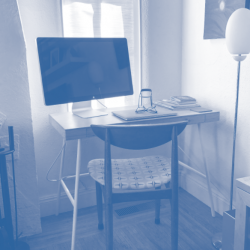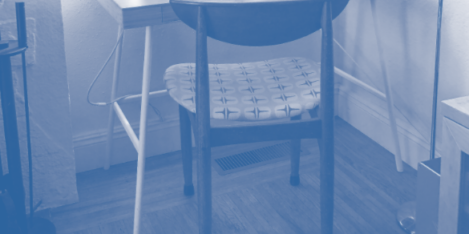December 2, 2020
Search Results for: business
December 2, 2020
Cornerstone Innovation Lab unites data scientists across the company to advance AI in the workplace
by Freddie Steele • Company news
 Cornerstone OnDemand, Inc. (NASDAQ: CSOD), has announced the formation of the Cornerstone Innovation Lab for AI, a new centre of excellence within the company composed of data scientists and machine learning experts who specialise in innovating practical and ethical ways to apply AI technology to the workplace. (more…)
Cornerstone OnDemand, Inc. (NASDAQ: CSOD), has announced the formation of the Cornerstone Innovation Lab for AI, a new centre of excellence within the company composed of data scientists and machine learning experts who specialise in innovating practical and ethical ways to apply AI technology to the workplace. (more…)
November 30, 2020
We need to understand and channel workplace conflict in the right way
by Jon Maddison • Comment, Workplace
 Earlier this month, in a sudden and unexpected turn of events, the prime minister’s chief adviser, Dominic Cummings, walked out of 10 Downing Street for the last time, having resigned/been asked to leave, depending on whose account of the episode you believe. However, the affair unfolded in reality, it seems clear that the departure of Cummings and Director of Communications, Lee Cain, was precipitated by workplace conflict and a series of internal disagreements, which had pushed their relationships with certain colleagues to breaking point. (more…)
Earlier this month, in a sudden and unexpected turn of events, the prime minister’s chief adviser, Dominic Cummings, walked out of 10 Downing Street for the last time, having resigned/been asked to leave, depending on whose account of the episode you believe. However, the affair unfolded in reality, it seems clear that the departure of Cummings and Director of Communications, Lee Cain, was precipitated by workplace conflict and a series of internal disagreements, which had pushed their relationships with certain colleagues to breaking point. (more…)
November 27, 2020
UKGBC publishes guidance to catalyse the delivery of net zero carbon buildings
by Jayne Smith • Environment, News, Property
 The UK Green Building Council (UKGBC) has published new guidance, Unlocking the Delivery of Net Zero Carbon Buildings, which examines how current barriers to the delivery of net zero carbon buildings can be overcome. (more…)
The UK Green Building Council (UKGBC) has published new guidance, Unlocking the Delivery of Net Zero Carbon Buildings, which examines how current barriers to the delivery of net zero carbon buildings can be overcome. (more…)
November 27, 2020
Generational stereotypes unhelpful when it comes to digital behaviour
by Jayne Smith • News, Technology, Working culture
 Windsor Telecom decided to take a look into the UK’s current working styles and trends to discover what tools and technologies are needed to bridge the generational gaps in the workplace. 341 people where surveyed to understand if their technology generation matched up with the generation they were born into. (more…)
Windsor Telecom decided to take a look into the UK’s current working styles and trends to discover what tools and technologies are needed to bridge the generational gaps in the workplace. 341 people where surveyed to understand if their technology generation matched up with the generation they were born into. (more…)
November 26, 2020
WorldGBC and global leaders call for historic Built Environment Day at COP26
by Jayne Smith • Environment, News
 The World Green Building Council joins nine international organisations to sign a letter to COP26 President, Alok Sharma, requesting a Built Environment Day at the climate summit in November 2021. The day at COP26 would be dedicated to the action pathways to accelerate the decarbonisation of the built environment, and it will demonstrate how business and governments are catalysing solutions to the climate crisis. (more…)
The World Green Building Council joins nine international organisations to sign a letter to COP26 President, Alok Sharma, requesting a Built Environment Day at the climate summit in November 2021. The day at COP26 would be dedicated to the action pathways to accelerate the decarbonisation of the built environment, and it will demonstrate how business and governments are catalysing solutions to the climate crisis. (more…)
November 26, 2020
Leading universities lag behind on sustainability teaching, research claims
by Jayne Smith • Environment, News
 Research conducted by EIT InnoEnergy, sustainable energy accelerator, claims that the world’s top ten universities including the University of Cambridge and Harvard University offer, on average, 2.8 courses focusing on sustainability and energy. This is compared to a global average of 5.6, as the accelerator calls for a more robust and comprehensive decarbonisation outlook by all major education players. (more…)
Research conducted by EIT InnoEnergy, sustainable energy accelerator, claims that the world’s top ten universities including the University of Cambridge and Harvard University offer, on average, 2.8 courses focusing on sustainability and energy. This is compared to a global average of 5.6, as the accelerator calls for a more robust and comprehensive decarbonisation outlook by all major education players. (more…)
November 25, 2020
Change like everyone is watching
by Neil Usher • Business, Comment
 At a time when we aren’t generally supposed to get within two metres of each other, depending on what the rules happen to be today (or part day), there’s a lot of embracing going on. Almost in some quarters as though it’s a resigned acceptance. You know the curve, with the part at the end where having denied it, got angry then depressed and reluctantly bargained with it, we finally get on with it. Which of course isn’t how anything happens at all. But that’s what us dedicate followers of Covid-era fashion are supposedly doing: embracing change. (more…)
At a time when we aren’t generally supposed to get within two metres of each other, depending on what the rules happen to be today (or part day), there’s a lot of embracing going on. Almost in some quarters as though it’s a resigned acceptance. You know the curve, with the part at the end where having denied it, got angry then depressed and reluctantly bargained with it, we finally get on with it. Which of course isn’t how anything happens at all. But that’s what us dedicate followers of Covid-era fashion are supposedly doing: embracing change. (more…)
November 25, 2020
Maternity leave causes women to lose out on £3.2 billion
by Jayne Smith • News, Wellbeing, Working culture, Workplace
 Women taking maternity leave collectively lose out on £3.2bn worth on earnings, a fall of nearly half their average annual salary, claims new research from Direct Line Life Insurance. (more…)
Women taking maternity leave collectively lose out on £3.2bn worth on earnings, a fall of nearly half their average annual salary, claims new research from Direct Line Life Insurance. (more…)
November 25, 2020
Third of people working from home worry about mental health
by Jayne Smith • News, Wellbeing, Working lives
 In a recent survey of 4,000 office-based employees and 1,000 employers in the UK, U.S, Singapore and the UAE, a third of employees expressed concern for their mental health whilst working from home during the COVID-19 pandemic. The research, conducted by health benefits provider, Aetna International, examines the perceptions of both employers and employees when it comes to corporate health and well-being. (more…)
In a recent survey of 4,000 office-based employees and 1,000 employers in the UK, U.S, Singapore and the UAE, a third of employees expressed concern for their mental health whilst working from home during the COVID-19 pandemic. The research, conducted by health benefits provider, Aetna International, examines the perceptions of both employers and employees when it comes to corporate health and well-being. (more…)
November 25, 2020
Several factors impact wellbeing of people working from home
by Jayne Smith • News, Wellbeing, Working lives
 A new study on work-life balance claims that the COVID-19 crisis is a crucial factor – but not the only one – behind low levels of wellbeing among employees working from home. A research team including Professor Ilke Inceoglu, Professor of Organisational Behaviour and HR Management at the University of Exeter Business School, analysed data from 835 university employees, who completed a baseline questionnaire on wellbeing and took a weekly survey. (more…)
A new study on work-life balance claims that the COVID-19 crisis is a crucial factor – but not the only one – behind low levels of wellbeing among employees working from home. A research team including Professor Ilke Inceoglu, Professor of Organisational Behaviour and HR Management at the University of Exeter Business School, analysed data from 835 university employees, who completed a baseline questionnaire on wellbeing and took a weekly survey. (more…)






 Almost half (46 percent) of workers expect their employers to provide them with green technology equipment, such as laptops, printers and other devices, according to new research from
Almost half (46 percent) of workers expect their employers to provide them with green technology equipment, such as laptops, printers and other devices, according to new research from 

















December 2, 2020
Creative firms have most to lose from a loss of serendipity
by Gary Chandler • Comment, Workplace design